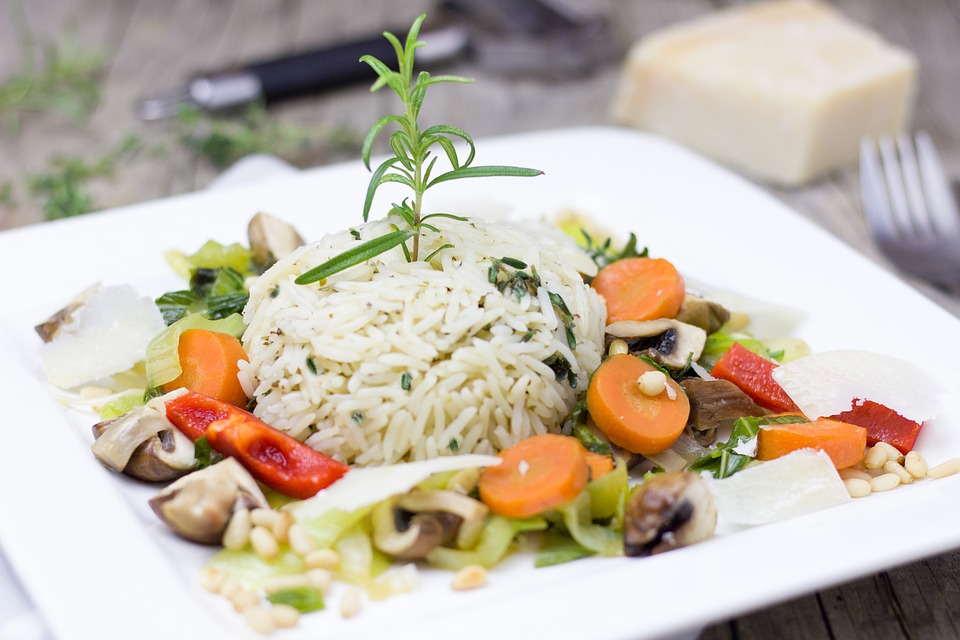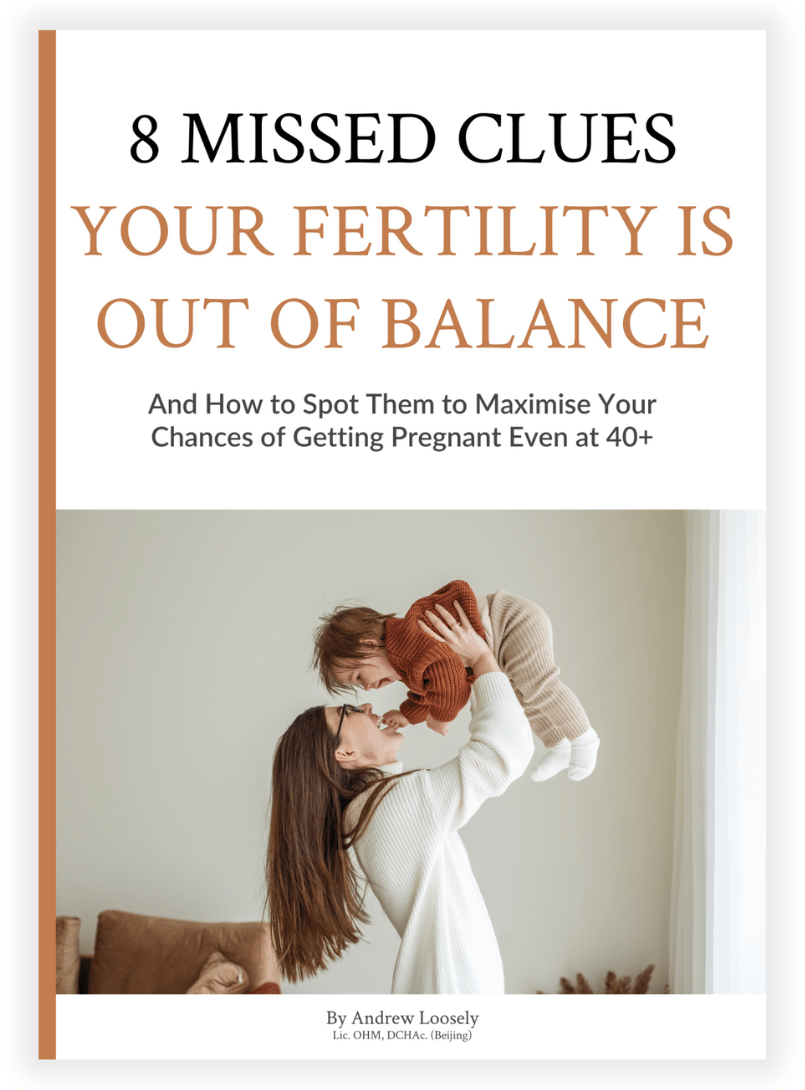Is rice really a helpful fertility food?

Is Rice helpful as a Fertility Food?
Rice is the seed of grass and is classed as a cereal grain.
Although brown rice is considered healthier and more nutrient-rich, it is harder to digest. If you have a weakened digestive system you are likely to use more energy digesting brown rice, than you will gain from it. Anyone with digestive issues should stick mostly to white rice, which the Chinese have consumed for around 8,000 years – based on this understanding.
Rice is carbohydrate-rich, and without the husk will convert to glucose (sugar) more quickly. If you eat too much there is a risk of causing unstable blood sugar levels and creating some issues with insulin (not good for any hormonal imbalance, or cystic condition such as PCOS).
The good news is that as long as you don’t consume more than 30% of rice in your diet, you should be fine.
Also, the speed at which rice converts to glucose will depend on how you cook it. If you cook your rice in bone stock, it absorbs the bone stock and will take longer for the body to break down – as the fat in the stock slows the process of conversion.
This is also true if you eat white rice with either plant oils (olive etc), fish oils from oily fish, or animal fats from cooking.
Key nutrients of Rice are:
Vitamin B1: Also known as Thiamine, is involved in the production of energy through the breakdown of sugars and carbohydrates. This is important for cellular health, which may also influence the health and energy of sperm and egg cells. Thiamine also helps the body make use of protein and is essential for brain functioning and digestion.
Vitamin B1 helps turn starch and sugar into usable energy that your body needs and plays an important role in nerve transmission. It’s also important for energy support during pregnancy.
Vitamin B2: Also known as Riboflavin is necessary for energy production and normal cell function and growth. It helps regulate body acidity and supports the other B vitamins to make the chemical changes that allow them to become useful.
Research shows that vitamin B2 can act as an antioxidant, which helps to combat against harmful free radicals. Free radicals are known to negatively impact sperm and egg health due to causing DNA damage, and so antioxidants are a vital part of the human diet.
Vitamin B2 is also needed by your adrenal glands to produce steroid hormones, which balance stress levels
Vitamin B3: Also known as Niacin, as with most other B vitamins is also involved in energy production within the mitochondria of your cells (the powerhouse of the cell).
It is an important part of the entire Vitamin B complex, which should be adequate in your diet to support your general and fertility health. Pregnancy requires good levels of niacin, as does breast feeding.
Iron: Iron is a mineral that the body uses to carry oxygen in the blood. It has many functions but also plays a key role in strengthening the immune system and regulating body temperature.
Magnesium: Magnesium supports a healthy immune system as well as keeping bones strong. It is also great for stress and combined with vitamin B6 can help induce sleep and alleviate symptoms of bloating and weight gain associated with PMS.
The production of Vitamin D also relies on Magnesium, and many people that are deficient in Vitamin D also have a Magnesium deficiency. Before taking a Vitamin D supplement I would recommend increasing Magnesium intake, whilst also increasing sun exposure, and then retest Vitamin D levels after 4 weeks.
Many people experience heightened stress levels and develop magnesium deficiency as it is a difficult nutrient to obtain from your diet.
Selenium: Selenium is one component of antioxidant enzymes and is also used by the body to help support thyroid health – particularly the conversion of thyroid hormones from one to the other. Thyroid health is fundamental to your general and fertility health and future pregnancy.
CHINESE FERTILITY MEDICINE USE IT TO:
- Treat Qi Deficiency
- Treat Dampness
QI DEFICIENCY
Qi is the word used in Chinese Fertility Medicine to describe energy, life force, or vitality inside and outside the body.
Qi is the non-physical aspect of your body that makes all of your organs and systems work.
This means that it’s vital for the function of all aspects of your fertility, and pregnancy health too. When your Qi is deficient your body struggles to function efficiently, and this can lead to a variety of fertility issues.
When Qi becomes more severely deficient you will likely present with hormone imbalance, typically with reduced Progesterone, Testosterone and/or FSH levels. In some cases, the FSH can rise and present itself as being elevated, due to the ovaries or testes being underactive and sluggish (tired).
Click here to read more about Qi Deficiency
DAMPNESS:
Dampness is the word used in Chinese Fertility Medicine to describe an overabundance of negative types of fluids that have accumulated in the body.
This includes mucus, phlegm, or water accumulation (edema) that build up over time in different areas of the body.
A variety of fertility issues can arise from having too much Dampness including immune disorders, fluid retention, circulatory issues, bacterial and fungal overgrowth, and other inflammatory diseases.
Reducing dampness can take some time, but the physical effects you receive will be worth it!
Click here to read more about Dampness
Increasing Qi and strengthening the digestive system is fundamental to good health, which is fundamental to good fertility.
The digestive organs breakdown, absorb, and transform everything you consume, turning the usable nutrients into new usable fuel for all other systems in your body. This produces Qi (energy), which supports the function of all of your systems.
Clearing dampness is also vital to many fertility issues, particularly Cysts, Fibroids, Polyps, Candida and Thrush, Bacterial and Fungal infections, Urinary Infections, PCOS and any issue that relates to accumulated waste or fluids.
Extra notes: Due to its Qi strengthening and Damp clearing properties, we use white rice frequently as a mild medicine in most people’s diet – to promote energy and support a healthy digestive system.
These qualities make it useful for the following issues Pre-menstrual or around Ovulation:
- Water retention and swelling – if you tend to fluid stagnation such as swollen painful
breasts. Swollen ankles. Bloating. - Delayed or late ovulation.
- Loose stools or diarrhoea.
Cautions: There are very few situations where rice needs to be avoided completely.
The biggest concern for most people is overeating of rice. Grains (and other high starch-based foods) should make up no more than around 30% of your daily diet. Eating more than this on a regular basis may cause blood sugar issues and an increase in weight gain if you have an underactive metabolism.
Disclaimer: https://naturalfertilityexpert.com/disclaimer/
Need more help?

Free Guide
8 MISSED CLUES YOUR FERTILITY IS OUT OF BALANCE – even if you’re over 40
Discover What’s Stopping You Having Your Baby
8 MISSED CLUES YOUR FERTILITY IS OUT OF BALANCE – even if you’re over 40
If you’re 40 or over and pregnancy isn’t happening for you naturally, or with IVF, then this guide will help you discover why being 40+ isn’t a barrier to having a baby – as long as you identify the root cause of your fertility issues and then bring your body back into balance.